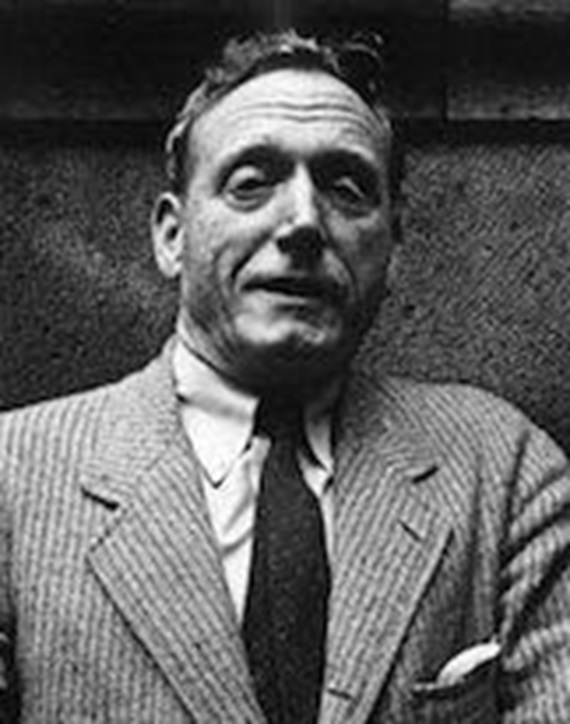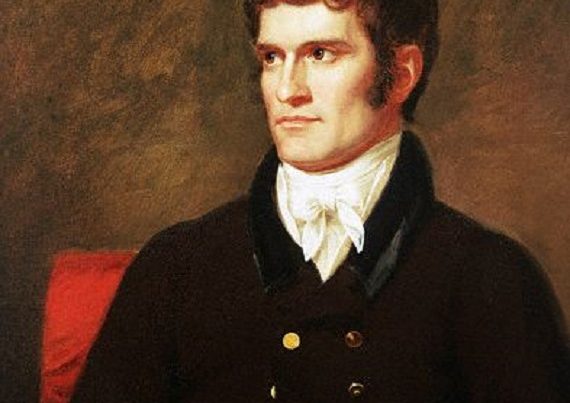A few days ago, I attended the annual Robert E. Lee Banquet in Virginia. I felt so at home and surrounded by Southern comrades who shared my values. We all had a grand time. In these trying days, it is very difficult to stand up for traditional Southern values.
I often think of my mentor Cleanth Brooks–whose grandfather was a lieutenant in the 7th Tennessee Cavalry, CSA, Forrest’s Corps–and his lifelong closest friend, the writer Robert Penn Warren.
“Red Warren” (as he was called by his closest friends) once asked his grandfather, the former Captain Gabriel Penn CSA, 15th Consolidated Tennessee Cavalry, Forrest’s Corps, “Grandpa, why did you do what you did in the War?’
Captain Gabriel Penn responded, “Back then, you went with your people.”
Gabriel Penn did not own any slaves. He was pro-Union and anti-secession, but what he said struck at the hearts of many true Southerners.
Cleanth told me, “I’ve known four geniuses. Faulkner, my friends Erich Voegelin, Buckminster Fuller, and Red Warren.”
I believe that.
As a side note, if y’all want to read my tale of Cleanth’s drinking encounter with Faulkner, y’all need to order the 2003 annual of the Robert Penn Warren Studies available through the University of Kentucky Press.
The only precious 1st edition of a Robert Penn Warren book I own is a late poetry collection: Being Here: Poetry 1977-1980
Robert Penn Warren was a great novelist, a great critic, a great essayist, a great teacher, and, above all, a great poet. Cleanth said to me, “Red always thought of himself above all as a poet.”
I love everything about Red Warren, including his published conversations. He was a truly fascinating man. I was once supposed to drive with Cleanth Brooks down to Robert Penn Warren’s farm for supper. I caught a death-dealing pneumonia which kept me in hospital for a month.
All that time, the octogenarian Cleanth Brooks visited me every day.
But I have to agree with my mentor Cleanth Brooks that Red Warren was one of our greatest poets. He is certainly the greatest poet the South ever produced.
Here is my favorite Robert Penn Warren poem. It is called “Old-Time Childhood In Kentucky”.
When I was a boy I saw the world I was in.
I saw it for what it was. Canebrakes with
Track beaten down by bear paw. Tobacco,
In endless rows, the pink inner flesh of black fingers
Crushing to green juice tobacco worms plucked
From a leaf. The great trout,
Motionless, pointed in the shadow of his
Enormous creek-boulder.
But the past and the future broke on me, as I got older.
Strange, into the past, I first grew. I handled the old bullet-mold.
I drew out a saber, touched an old bayonet, I dreamed
Of the death scream. Old spurs I tried on.
The first great General Jackson had ridden just north to our state
To make duel legal—or avoid the law.
It was all for honor. He said: “I would have killed him
Even with his hot lead in my heart.” This for honor. I longed
To understand. I said the magic word.
I longed to say it aloud, to be heard.
I saw the strategy of Bryce’s Crossroads, saw
The disposition of troops at Austerlitz, but knew
It was far away, long ago. I saw
The murks of the old man’s stick in the dust, heard
The old voice explaining. His eyes weren’t too good,
So I read him books he wanted. Read him “Breasted’s History of Egypt”. Saw years uncoil like a snake,
I built a pyramid with great care. There interred
Pharaoh’s splendor and might.
Excavation next summer exposed that glory to man’s sight.
At a cave mouth my uncle showed me crinoid stems,
And in in limestone skeletons of the fishy form of some creature.
“All at once under water,” he said, “saying the millions
Of years.” He walked off, the old man still with me. “Grandpa,”
I said, “what do you do, things being like this?” “All you can,”
He said, looking off through treetops, skyward. “Love
Your wife, love your get, keep your word, and
If need arises, die for what men die for. There aren’t
Many choices. And remember that truth doesn’t always live in the number of voices.”
I see in this great long poem, how Robert Penn Warren attains modernity as a writer who came from the Southern Agrarian tradition, but never forgot his Southern heritage. Brooks would remind me, “though Red spent all these years up North, he could NOT not write about the South.”
Southern honour. The memory of Southern history. The fact that his beloved grandfather, a former cavalry officer in Forrest’s Corps, who taught him military strategy as a child, that is evident in this great poem. And despite the fascinating new sciences of the modern world which Robert Penn Warren’s uncle showed him, the Southern tradition drew him back. Robert Penn Warren’s constant reminder is found in the last brilliant stanza of “Old-Time Childhood in Kentucky”, the final conversation between the young Red Warren and his ageing grandfather who had gone through four years of battle horror in defense of the South.
“Love your wife, love your get, keep your word, and if need arises, die for what men die for. There aren’t many choices. And remember that truth doesn’t always live in the number of voices.”
Red Warren dedicated his poem, “Being Here”, to a former cavalry officer of Nathan Bedford Forrest, his grandfather:
To
GABRIEL THOMAS PENN
(1836-1920)
OLD MAN: You get old and you can’t do anybody
any good anymore.
BOY: You do me some good, Grandpa. You tell me things.







An excellent post, Mr. Vinh.
If I was born with a privilege it was having a sense of belonging to something honorable…you went with your people, you never brought shame upon the family name…as I have aged and with the blessing of God, seen all information ever gathered made available through this miracle of the internet, I know, as my father used to say, THE TRUTH WILL OUT.
Our enemies have only the lie…and the lie is too easily exposed in this day…but our yankee foe knew we were honorable…that’s why he allowed the celebration of our heritage…the communist only knows we are a threat to his rule over us all…and he is correct in this one belief.